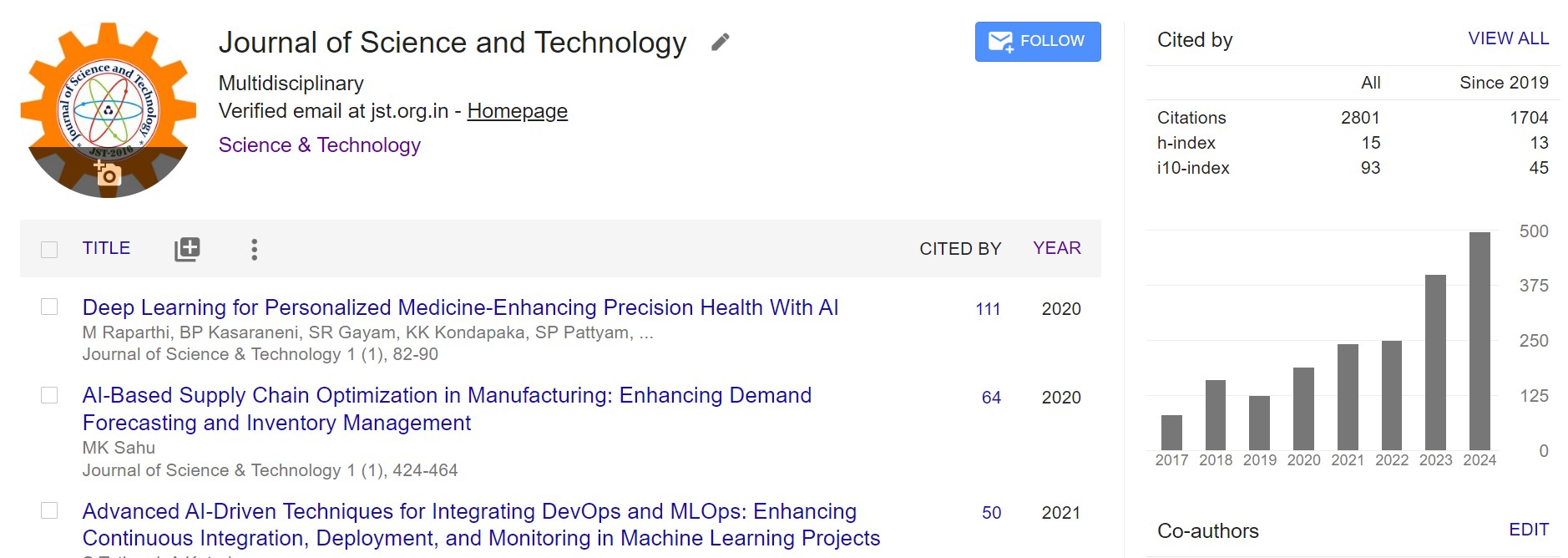HYBRID AI MODELS AND SUSTAINABLE MACHINE LEARNING FOR ECO- FRIENDLY LOGISTICS, CARBON FOOTPRINT REDUCTION, AND GREEN SUPPLY CHAIN OPTIMIZATION
DOI:
https://doi.org/10.46243/jst.2023.v8.i12.pp230-255Keywords:
Hybrid AI Models, Sustainable Machine Learning,, Eco-Friendly Logistics,, Carbon Footprint Reduction, , Green Supply Chain Optimization, Route Optimization,, Energy-Efficient Transport,, Resource Efficiency, Green Supply Chain Practices,, AI-Driven Solutions, Sustainability,, , Machine Learning in Logistics.Abstract
The increasing need for climate change mitigation has led the way towards making logistics and
supply chain management greener. While global trade and transportation are growing, the
pollution factor, such as carbon footprints and the use of energy, has taken center stage as a matter
of concern. With this, Hybrid AI Models and Sustainable Machine Learning are being incorporated
into green logistics for reducing carbon emissions and creating sustainable green supply chains. These AI-based solutions employ techniques such as deep learning, optimization algorithms, and
neural networks to optimize route transportation, improve vehicle performance, and optimize
resource allocation. With the use of these technologies, carbon footprint minimization has been
able to register improvements of up to 30% in certain situations, and improvements in resource
efficiency have been witnessed at 25%. The convergence of these technologies not only enables
the reduction of carbon footprints but also increases sustainability in supply chain management.
The ability of Hybrid AI models to spur sustainability is discussed in this paper through more
efficient logistics functions, maximizing resource utilization, and enabling green supply chain
practices while creating a mechanism to attain long-term environmental objectives.


























